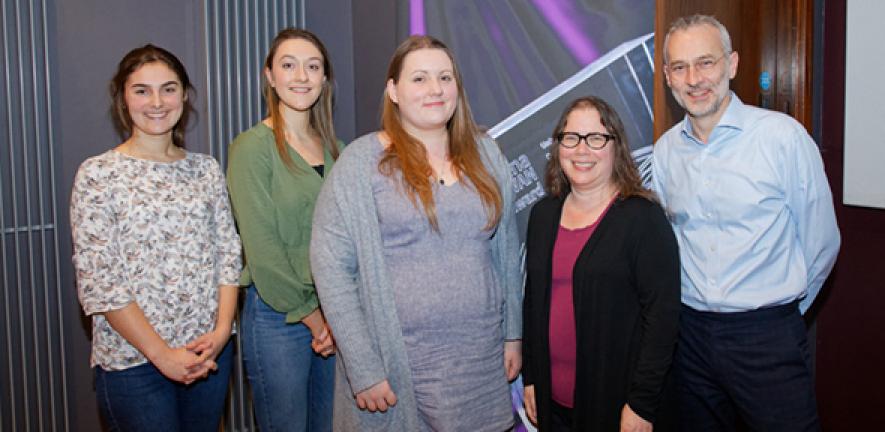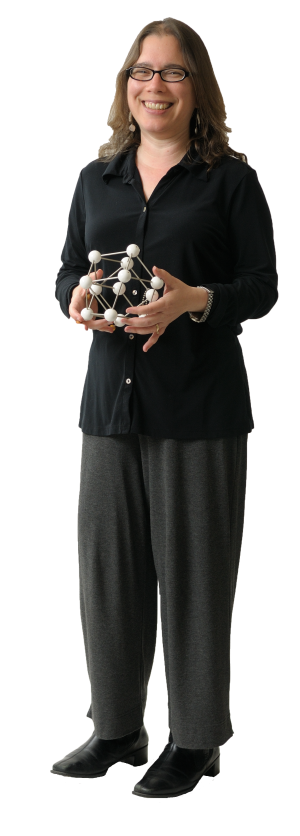
Professor Murphy was visiting us from the Department of Chemistry at the University of Illinois at Urbana-Champaign where she holds the Larry R. Faulkner Endowed Chair in Chemistry.
"Almost all professionals suffer from 'imposter syndrome' at some time."
 She had come here to give a BP Sustainability Lecture about her reseach into gold nanorods, talking about 'the synthesis and surface chemistry of gold nanocrystals'. For this pioneering work, Cathy will receive the 2020 ACS Award in Inorganic Chemistry, making her the first woman to win this award since its inception.
She had come here to give a BP Sustainability Lecture about her reseach into gold nanorods, talking about 'the synthesis and surface chemistry of gold nanocrystals'. For this pioneering work, Cathy will receive the 2020 ACS Award in Inorganic Chemistry, making her the first woman to win this award since its inception.
But as part of our Athena SWAN programme to offer careers support to our students and staff, we also ask our visiting named lecturers to give careers presentations. (See Cathy pictured above, second from left, with some of our students and Deputy Head of Department Nick Bampos, a key developer of the Athena SWAN programme in the department.)
And so after discussing her science, Cathy went on to give an informal overview of her career, including how she started and the challenges she met along the way from being a PhD student to a successful and high profile research scientist.
Straying into research by accident
Cathy explained that she had initially followed a somewhat random path, and that in her case, small things had indeed made big differences. While studying for Bachelor's degrees in both chemistry and biochemistry, she had got her first experience in research "by accident". Too shy to ask questions in class, she had instead gone to ask an assistant professor for help with a difficult topic - and found herself becoming intrigued by the work going on in the lab where he was based.
She subsequently participated in research projects in a number of different fields, before settling on her particular area of research. She had looked, she said, not just for projects in areas that she was interested in, but ones where she felt she could see a way to move the field forward.
She told listeners that along the way, she had experienced many different styles of supervision from the extremely rigorous, to the cheerleading, to the listener, and that now she tried to incorporate all three elements into her own supervision style.
And as a supervisor herself, she offered lots of advice to our graduate students on how to optimise their experience here. She reassured those struggling with 'imposter syndrome' that "almost all professionals feel this at some time in their career - particularly in fundamental science where the frontier is moving forwards all the time and you can feel you are being left behind".
She encouraged them to work on their time management, being realistic about what they could achieve and, in particular, allotting time to planning so that they were using their time effectively.
"Take time for conversations with your fellow researchers"
And she urged them to take their headphones off from time to time and have conversations with each other.
"Because although listening to music is nice, when you're doing that, it means you're talking to your fellow researchers less - and that's a lost opportunity for learning."
And that was one more little thing, she said, that could make a big difference.

